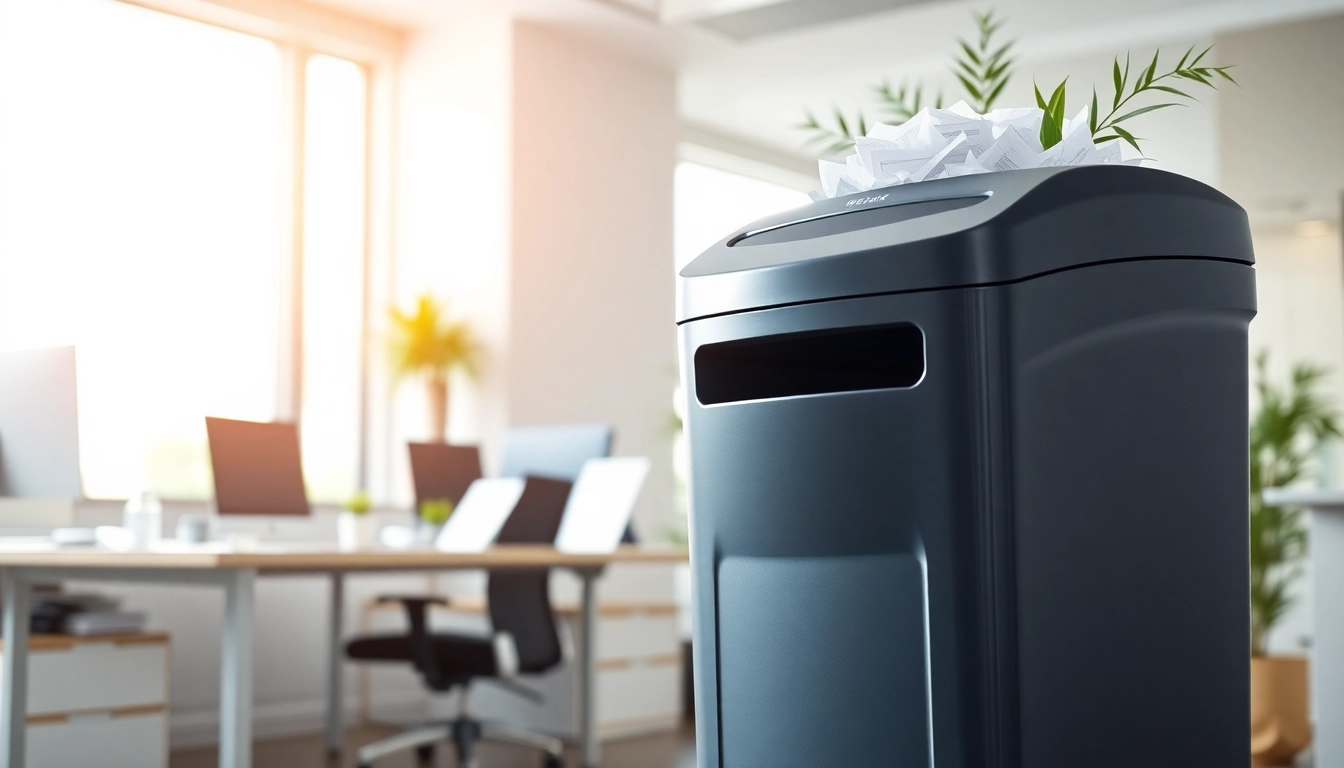Understanding Confidential Waste Collection and Shredding
In today’s data-driven world, the need for secure handling of sensitive information has never been more crucial. As businesses accumulate various types of confidential materials, it becomes imperative to have a solid plan for their disposal. Confidential Waste Collection and Shredding services are designed to ensure that sensitive documents and materials are disposed of securely, preventing unauthorized access and potential data breaches.
What is Confidential Waste?
Confidential waste refers to documents and materials containing sensitive information that must be managed with care to prevent misappropriation. This can include personal data, trade secrets, financial records, and strategic plans, among other forms of information. Any business that handles customer data, employee records, or proprietary information must establish procedures for identifying and managing confidential waste effectively.
The Importance of Secure Disposal
Secure disposal of confidential waste is paramount for several reasons. Firstly, it protects organizations against identity theft and data breaches, which can lead to legal consequences and loss of customer trust. Additionally, inappropriate disposal of confidential documents can result in severe financial losses and damage to a reputation. In an era where cybersecurity threats are on the rise, businesses must be proactive about implementing secure disposal practices.
Common Types of Confidential Waste
Common types of confidential waste include:
- Personal Identifiable Information (PII): Data that can be used to identify an individual, such as names, addresses, Social Security numbers, and bank details.
- Medical Records: Patient information that is protected under laws such as HIPAA, requiring secure disposal methods.
- Financial Records: Documents that contain sensitive business or personal financial details, like tax returns and bank statements.
- Legal Documents: Papers related to legal proceedings or contracts that must be handled with confidentiality.
- Trade Secrets: Proprietary knowledge that provides a competitive edge, including formulas, processes, or customer lists.
Benefits of Confidential Waste Collection and Shredding
Protecting Sensitive Information
One of the primary benefits of utilizing confidential waste collection and shredding services is the optimal protection of sensitive information. Shredding renders documents unreadable and unable to be reconstructed, significantly reducing the risk of data theft. By employing these services, businesses can ensure compliance with legal obligations surrounding data protection, particularly under regulations like GDPR.
Environmental Impacts of Responsible Shredding
In addition to security, responsible shredding has positive environmental implications. When shredded materials are recycled rather than simply disposed of, it helps reduce landfill waste and supports sustainability efforts. Shredding promotes the reuse of paper products and ensures that sensitive information is not only destroyed but also recycled, contributing to a circular economy.
Cost-Effectiveness of Shredding Services
Utilizing professional shredding services can be surprisingly cost-effective. While some businesses may hesitate to invest in these services, the potential savings from avoiding data breaches, compliance fines, and reputational damage can far exceed the costs. Moreover, these services often provide convenience by managing waste collection regularly, allowing companies to focus on their core activities rather than handling disposal.
Choosing the Right Confidential Waste Collection and Shredding Provider
What to Look For in a Service Provider
When selecting a confidential waste collection and shredding provider, it is essential to assess their experience, reputation, and the range of services they offer. Look for companies that are certified and comply with industry standards for data protection. It’s also beneficial to select a provider that tailors services to meet the specific needs of your business.
Evaluating Security Standards
Security standards are a critical consideration when choosing a shredding service. Investigate their shredding processes and ensure that they adhere to regulations such as ISO 27001 or NAID certification. These standards ensure that the provider follows stringent procedures for the handling, storage, and destruction of confidential waste.
Comparing Pricing Structures
Pricing can vary widely between confidential waste collection and shredding providers. It’s crucial to compare pricing structures and understand what is included in each service. Some providers might charge per pound, whereas others offer fixed-rate services. Evaluate whether the cost aligns with the level of security and service you require.
Best Practices for Confidential Waste Management
Establishing In-House Protocols
Establishing strong in-house protocols is the first step in effectively managing confidential waste. This includes defining what constitutes confidential waste, identifying responsible personnel, and outlining the procedures for handling, storing, and disposing of sensitive materials. For optimal effectiveness, these protocols should be reviewed and tested regularly.
Employee Training on Confidential Waste Handling
Training employees on the importance of proper handling of confidential waste is critical. Regular training sessions can keep team members informed about the protocols and the importance of safeguarding sensitive data. Encouraging a culture of security helps to embed these practices within the organization and can reduce the likelihood of errors that could result in data leaks.
Regular Audits of Waste Disposal Procedures
Conducting regular audits of waste disposal procedures serves to evaluate the effectiveness of your protocols. Audits help in identifying any gaps in compliance and security that need addressing. Keeping a close eye on how confidential waste is managed ensures that any weaknesses are dealt with promptly and that your organization remains in adherence to relevant regulations.
Future Trends in Confidential Waste Collection and Shredding
Technological Innovations in Shredding
The future of confidential waste collection and shredding is poised for technological advancements. Innovations may include more efficient shredding machinery that can handle larger volumes of materials with enhanced security features. Additionally, integrating digital solutions that offer tracking of shredded materials may become more commonplace, providing businesses with comprehensive insights into their waste management processes.
Adapting to Evolving Regulations
As regulations surrounding data protection continue to evolve, it is vital for businesses to stay informed and adapt accordingly. Changes in legislation requiring stricter compliance measures will necessitate a higher standard of care in the handling and disposal of confidential waste. Organizations should remain proactive in their compliance efforts to avoid penalties and safeguard their reputations.
Integrating Sustainable Practices in Waste Management
The focus on sustainability will likely intensify, prompting businesses to integrate eco-friendly practices into their waste management strategies. This could involve using shredded materials for recycling and collaborating with providers that demonstrate a commitment to environmental responsibility. Embracing sustainable practices will not only contribute to environmental stewardship but also enhance corporate reputation among environmentally-conscious consumers.



